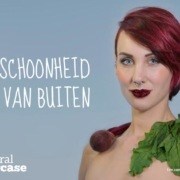What’s the deal with the Plastic Soup again?
March 15 2024 That’s what readers of news site nu.nl on their comment platform Nujij were wondering. In a recent […]
Although labeled as food-safe by the Food and Drug Administration (FDA), some plastic bags can leach chemicals that are highly toxic and the toxicity can vary among products having the same label. Heather J. Hamlin and her team (University of Maine) illustrated this in a study published by the scientific journal Chemosphere.
Scientists investigated whether nonylphenol (NP, a common chemical used as a plasticizer in industry and commercial products) can leach from some plastic bags labeled as food-safe into their contents. They conducted an experiment using sea water and the tropical coral fish (pseudochromis fridmani). The fish are often used for hobby purposes and are usually transported in similar food-grade polyethylene plastic bags (PE1 and PE2). For comparison, fish were also kept in various containers including, glass bowls and Teflon bags.
After 48 hours:
Plastic bags used in these experiments were made of food-grade plastics approved by US FDA and are considered as safe for storing and carrying food for consumption. However, the study at hand shows that although a product may have an identical label, the toxicity of products may vary considerably between manufacturers. NP-levels that are leached can vary depending on the plastic, posing a greater risk to the aquatic environment as well as to human health than previously thought.
March 15 2024 That’s what readers of news site nu.nl on their comment platform Nujij were wondering. In a recent […]
The first Impact Fair is Europe’s largest Impact Experience. An interactive ‘immersive’ experience of impactful examples.
The waste-export to countries outside of the EU has been restricted The Netherlands is against a carpet ban on shipping of plastic waste.
The waste-export to countries outside of the EU has been restricted The Netherlands is against a carpet ban on shipping of plastic waste.

 Zero plastic inside tops “Rank a Brand” list!
Zero plastic inside tops “Rank a Brand” list!